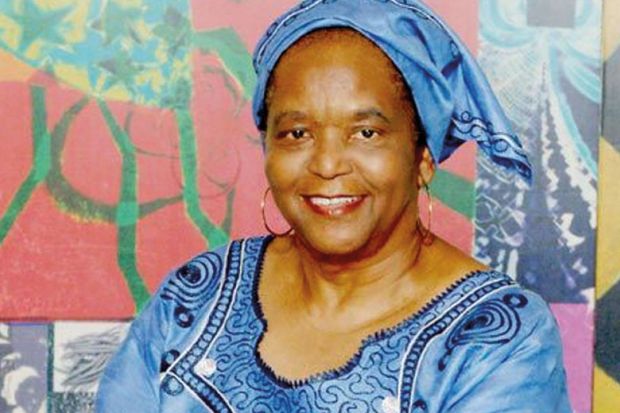An activist and scholar of African and black American family life has died.
Niara Sudarkasa was born Gloria Marshall in Fort Lauderdale, Florida in 1938 and was largely brought up by her maternal grandparents – something that might help to explain her deep interest in extended family structures in Africa and the African diaspora. Her academic talent soon became obvious and, aged just 14, she began an early admissions programme at Fisk University before transferring to Oberlin College in 1957 for a double degree in anthropology and English. She went on to a master’s in anthropology at Columbia University (1959) and then a PhD in Yoruba language and culture, including 21 months’ fieldwork in Nigeria.
While studying at Columbia, Professor Sudarkasa became the first African American to take on a teaching role – and so began a career notable for firsts. In 1964, she was the first African American woman to teach anthropology at New York University, and five years later the first tenured African American professor at the University of Michigan. She later served as the first female African American director of Michigan’s Center for Afroamerican and African Studies and adopted the name of Niara (“woman of high purpose” in Swahili) Sudarkasa.
During her 17 years at Michigan, Professor Sudarkasa played a prominent role in the campaign of the Black Action Movement to boost the proportion of black students at the university and established herself as an expert on African, Caribbean and African American life. In Where Women Work: A Study of Yoruba Women in the Marketplace and at Home (1973), for example, she challenged many assumptions about oppressive gender roles, polygamy and women’s role in economic activity and public life. She also drew on her extensive travels in Africa to promote educational initiatives and illuminate African American life, in books such as Building a Partnership in Education: The Key to African Development (1992) and The Strength of Our Mothers: African and African American Women and Families: Essays and Speeches (1997).
In 1986, Professor Sudarkasa again proved a pioneer when she became the female president of Lincoln University, the oldest historically black college in the US. She resigned in 1998 after a controversy around financial irregularities, admitting to “serious management deficiencies” but disputing the graver allegations laid against her and her husband. She then returned to Fort Lauderdale to take up the position of distinguished scholar in residence at the African-American Research Library and Cultural Center, to which she also donated much of her collection of African artworks. She died on 31 May and is survived by a son and five grandchildren.
Register to continue
Why register?
- Registration is free and only takes a moment
- Once registered, you can read 3 articles a month
- Sign up for our newsletter
Subscribe
Or subscribe for unlimited access to:
- Unlimited access to news, views, insights & reviews
- Digital editions
- Digital access to THE’s university and college rankings analysis
Already registered or a current subscriber? Login







